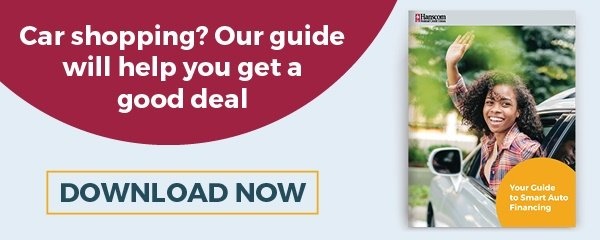Everyone loves getting the best deal, especially on a car.
For many people, scoring discounts by visiting clearance racks at a favorite retailer is easy. It's harder, and often intimidating, to negotiate the best deal on a new or used vehicle.
But it doesn't have to be this way. Paying less than a vehicle's original sticker price not only leaves more money in your bank account, but could earn you bragging rights among friends and family.
Before you chat up a dealership salesperson, take these negotiating tips on a test drive:
Bring the knowledge. Show that you've done your homework. Let the salesperson know that you've shopped prices and recognize how much the vehicle is selling for in your local market. When you suggest a lower price in the context of your research, your counteroffer will appear more reasonable.
Redirect the conversation. A salesperson who wants to talk money first will typically focus on monthly payments or the manufacturer's suggested retail price (MSRP). By focusing on payments, it's easier to ignore the sticker price, financing costs, or other charges.
If they start with the MSRP, they're not starting with the lowest possible price. The MSRP is a starting point for negotiations on all but the most in-demand vehicles. To get the best deal, focus on reducing the vehicle's total cost first, not the payments.
Know your incentives. Search online for auto manufacturer incentives, like cash offers and rebates before walking through the doors of a dealership. That way, you can make sure they're subtracted from the price that appears on the sales contract.
Remember, you must qualify for each discount. If a particular dealer doesn't offer an eligible incentive, they may be willing to match the reduction in price to save the sale.
Cut to the chase. If you're negotiating at a dealership, ask for the "out-the-door" price. This signals to the salesperson that you want to know the bottom line price, including all taxes, fees, and other charges that aren't included in the sticker price. Negotiate from this figure instead of an inflated one that exceeds your budget.
Negotiate online. While you shouldn't finalize a vehicle purchase without first taking it for a spin, you can start negotiations before heading to the dealership. Email dealers within a 50-mile radius of your location and ask them for the best price on a specific make and model.
You might find a dealer just outside of town selling a similar vehicle at a lower cost. Or, you might use those quotes to get the lowest price from your preferred dealer.
Choose your shopping days wisely. Generally, dealerships experience increased foot traffic on weekends. Use this to your advantage by shopping during the week. You could also wait until the last week of the month. A salesperson might be more willing to negotiate when they need to hit weekly or monthly sales targets.
Practice patience. It's tough to negotiate when you're emotional. If you feel an urgent need to buy a car or have fallen in love with a specific vehicle, you're more likely to lose focus on price. There's no rush. Don't be afraid to walk away from the negotiated price, especially if it doesn't fit your budget.
Get pre-approved before you waltz into the dealership. Entering a dealership with a spending limit can help with negotiations. A loan pre-approval from your credit union can position you as a cash buyer. When this occurs, the salesperson can no longer use monthly payments as a negotiating tool. Instead, you can focus on getting them to reduce the total cost of the vehicle by increasing the value of other items, such as the trade-in, warranties, and vehicle upgrades.
Dealers will still try to push you to let them handle financing. If you've been pre-approved by your credit union, let them finish the job. At Hanscom FCU, we offer Guaranteed Asset Protection (GAP) Advantage for $399. If your dealer offers GAP through their financing, it will probably be much more than what you'd pay for it through a credit union. GAP Advantage offers a few other perks, like covering the cost of your deductible on your auto policy up to $500 for all the cars you own, for as many claims you make over three years. You will also receive an additional credit of $1,000 you can apply toward the financing of a new vehicle, providing you finance with Hanscom FCU within 90 days of a total loss.
Take it one step at a time. Avoid discussing financing, trade-in credit, upgrades, incentives, and other items under the umbrella of the monthly payment. For example, a dealer might say "Your payment will be $433 a month if we include XYZ." Don't fall for this sales ploy.
Tease out the cost of the vehicle from other aspects of the deal. Ask the salesperson for the cash price for the car with no add-ons. Once you have this figure, you can begin negotiations by presenting the maximum amount you're prepared to pay.
Use the results from an independent inspection. If you're looking to purchase a used vehicle, the results from an inspection performed by an independent, certified mechanic might help you negotiate a lower price. The seller can make the requested repairs or reduce the sales price by the amount it would cost you to complete the repairs yourself. And don't forget: as a Hanscom FCU member, one CARFAX report is available free of charge when you obtain an Hanscom FCU vehicle loan after reviewing the report.
Arming yourself with the knowledge and skills needed for successful negotiations doesn't mean you're preparing for battle. It simply puts you in the driver's seat and on the road to long-term savings.
Download our free eGuide before you make an offer on your next car. You'll get the information you need to make the best purchasing decision. Get your eGuide here!
Others are reading:














Comment